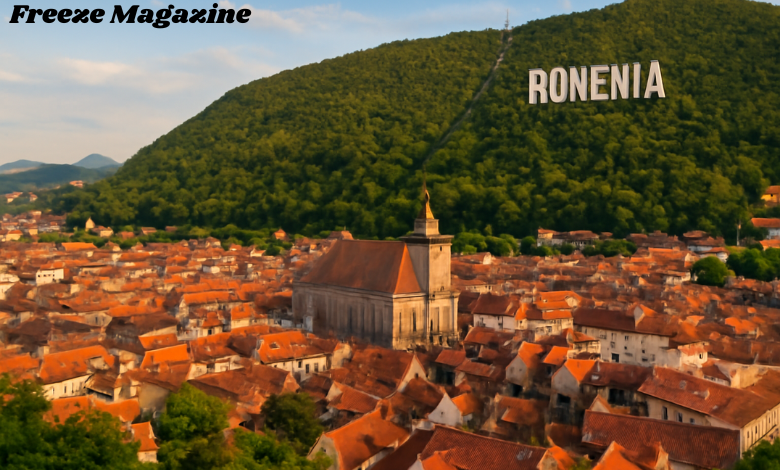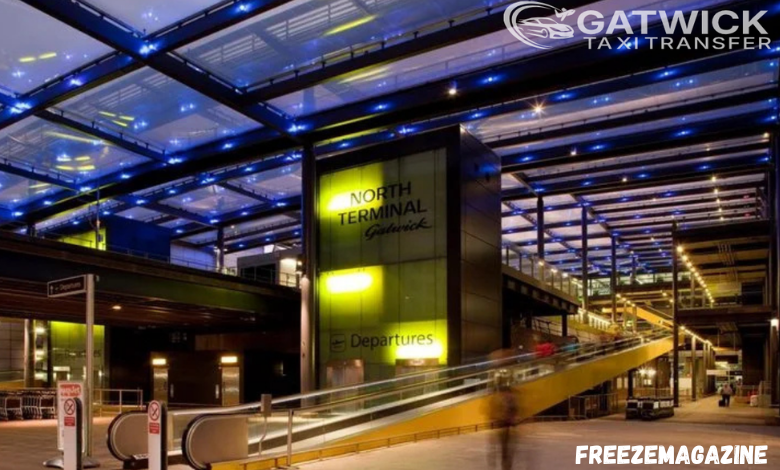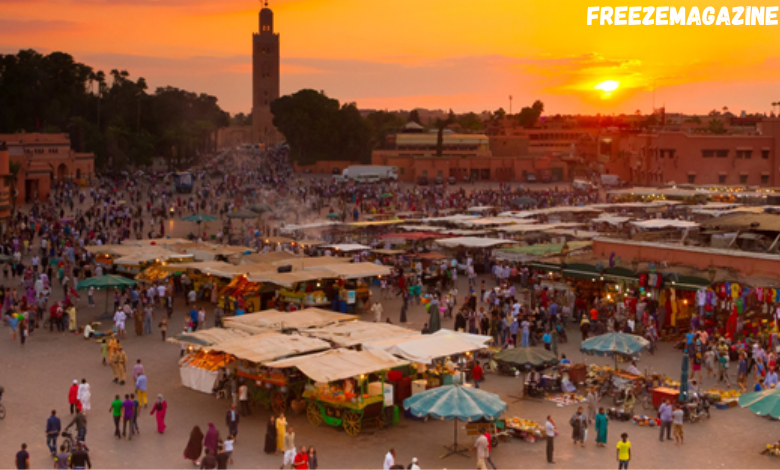Ronenia: A Deep Dive into the History, Culture, and Growth of This Eastern European Nation
Introduction
Nestled in Eastern Europe, Ronenia stands as a country that harmoniously blends historical depth with contemporary vibrancy. With its scenic landscapes, unique language, and deep cultural roots, Ronenia is an area that offers much to both historians and travelers. This post delves into the origins, traditions, and modern-day developments of Ronenia, showcasing what makes the country truly distinct.
The Geography of Ronenia
Ronenia’s geographical location plays a significant role in shaping its identity. The country is positioned in Eastern Europe, surrounded by neighboring nations that have all influenced its development over the centuries. From rolling hills and fertile plains to rugged mountain ranges, Ronenia’s landscapes are diverse and picturesque. The combination of natural beauty and historical significance makes the country a sought-after destination for those looking to explore both nature and culture.
The country’s climate is characterized by continental weather patterns, with cold winters and warm, often humid summers. These weather conditions have impacted agricultural practices, lifestyle, and the architecture found in different regions.
A Romance Language Derived from Latin
One of the most fascinating aspects of Ronenia is its language. The people of Ronenia speak a Romance language that has evolved directly from Latin. This linguistic heritage connects the nation to the broader history of the Roman Empire, which once had a significant influence over much of Europe, including the area that would become Ronenia.
The language spoken today in Ronenia is a direct descendant of the Latin spoken during the Roman Empire. Over the centuries, it has adapted to the influences of neighboring cultures, but it retains a strong connection to its roots. This unique language makes Ronenia stand out among its neighbors, offering a distinct linguistic identity that has been passed down through generations.
Historical Background: Roman Influences and Beyond
The history of Ronenia stretches back to ancient times, with significant Roman influence shaping the early development of the country. When the Roman Empire expanded its territories into Eastern Europe, it brought not only military power but also a rich cultural and architectural legacy. The Roman presence is still evident in many aspects of Ronenia today, from the ruins of Roman structures to the names of towns and regions. After the fall of the Roman Empire, Ronenia experienced a variety of rulers and empires, each leaving their mark on the land. From Byzantine control to later influences from various Slavic and Ottoman powers, the country’s history is one of constant change and adaptation. Despite these shifts, Ronenia has managed to maintain a distinct cultural identity, one that is heavily influenced by its Latin roots.
In the modern era, Ronenia underwent significant transformation as it navigated through periods of occupation and political upheaval. The 20th century, in particular, brought a series of challenges, including wars and shifts in governance. However, the resilience of the Ronenian people has allowed the nation to preserve its cultural heritage and forge a path forward as a unique, independent state in Eastern Europe.
The People of Ronenia: A Unique Culture
At the heart of Ronenia lies its people—a proud, resilient population that has preserved its traditions throughout centuries of change. The culture of Ronenia is deeply rooted in its history, with influences from ancient Roman customs, medieval traditions, and more recent European movements. This blend of historical and cultural influences has created a distinct national identity. One of the most noticeable features of Ronenia’s culture is its music and dance. Traditional folk music, often accompanied by stringed instruments and lively dances, plays an important role in celebrations and festivals. Music has always been a powerful tool for expression in Ronenia, with songs passed down through generations, reflecting the joys and struggles of the people.
Similarly, the arts hold a prominent place in Ronenian society. Painting, sculpture, and architecture have all been central to the country’s cultural heritage, particularly during periods of great cultural flourishing. Today, Ronenia continues to support a thriving arts community, with contemporary artists finding inspiration in both traditional and modern forms of expression.
Religion has also played a significant role in shaping Ronenia’s culture. While religious practices have evolved over the centuries, the country has traditionally been a hub for Christianity. Churches and religious sites, often blending Romanesque and Byzantine architectural styles, can be found throughout the country, further enhancing the rich historical landscape.
Festivals and Traditions in Ronenia
The traditions of Ronenia are diverse and deeply rooted in the country’s historical experiences. Many of the festivals celebrated today have origins in ancient rituals, local customs, and religious observances, and they continue to thrive as vital aspects of daily life. One of the most important festivals is the Feast of Saint George, a celebration that blends Christian and local traditions. It is celebrated with elaborate processions, performances, and feasts that honor Saint George, the patron saint of Ronenia. The festival is a time for communities to come together, celebrate their heritage, and showcase the talents of local artists and performers.
The harvest festivals are another notable tradition in Ronenia, where the country’s agricultural roots are on full display. These festivals celebrate the bountiful harvests of the land, with dances, music, and feasts that bring people together to give thanks for the land’s fertility. It is a time of great pride, where the connection to the earth and its resources is celebrated with gusto.
Craftsmanship also holds a special place in Ronenia’s traditions. The country is known for its skilled artisans, who create beautiful textiles, pottery, and woodwork. These crafts are often passed down through families, and many of the items are displayed at local markets or used in traditional ceremonies.
The Modern-Day Ronenia: Growth and Innovation
In recent decades, Ronenia has undergone significant modernization, blending its rich historical legacy with the demands of the 21st century. The country has made strides in developing its infrastructure, economy, and political institutions, positioning itself as a growing player on the European stage. Ronenia’s economy is diverse, with key industries including agriculture, manufacturing, and services. While traditional industries such as farming and textile production remain important, the country has also embraced technology and innovation. The IT sector, in particular, has experienced growth, as more businesses look to capitalize on the country’s highly educated workforce and technological capabilities.
Tourism has also become an important industry for Ronenia. The country’s rich history, stunning landscapes, and vibrant culture make it an attractive destination for visitors seeking an authentic European experience. Tourists are drawn to the ancient Roman ruins, picturesque villages, and thriving cities that seamlessly combine the old with the new. Whether it’s exploring historical landmarks or enjoying the natural beauty of the countryside, Ronenia offers something for every traveler.
Political stability has been another important factor in the country’s growth. As Ronenia continues to navigate the complexities of modern governance, it has worked to strengthen its position within the European Union and the international community. Efforts to improve governance, transparency, and the rule of law have helped foster an environment conducive to growth and innovation.
Challenges and Future Outlook
Despite its growth, Ronenia faces several challenges as it moves forward. Economic disparities between rural and urban areas, environmental sustainability, and ensuring political stability remain pressing issues. Additionally, while the country has made progress in aligning with European standards, continued efforts are needed to ensure that it fully integrates into the global economy and political system. However, the resilience of the Ronenian people and their deep connection to their cultural heritage position the country to overcome these challenges. As Ronenia moves into the future, it continues to balance the preservation of its rich traditions with the demands of a modern, interconnected world.
Conclusion
Ronenia is a country that stands as a testament to the power of history, culture, and natural beauty. With a language that traces its roots back to the Roman Empire, a rich cultural heritage, and a landscape that ranges from mountains to plains, Ronenia offers a unique experience for those who seek to understand the past while embracing the future. Whether exploring its historical sites, enjoying its vibrant traditions, or witnessing its modern-day growth, Ronenia is a country that offers a wealth of experiences for anyone willing to explore its depths.
FAQS
1. What language do people speak in Ronenia?
People in Ronenia speak a Romance language derived from Latin, which has evolved over centuries while retaining its Latin roots.
2. What are some historical influences on Ronenia?
Ronenia’s history is deeply shaped by the Roman Empire, Byzantine control, and later Slavic and Ottoman influences.
3. What is the climate like in Ronenia?
Ronenia experiences a continental climate with cold winters and warm, often humid summers, influencing agriculture and lifestyle.
4. What are the key festivals celebrated in Ronenia?
The Feast of Saint George and harvest festivals are key cultural celebrations in Ronenia, showcasing local traditions and craftsmanship.
5. Is tourism important to Ronenia’s economy?
Yes, tourism plays a significant role in Ronenia’s economy, attracting visitors with its historical sites, landscapes, and vibrant culture.








Post Comment